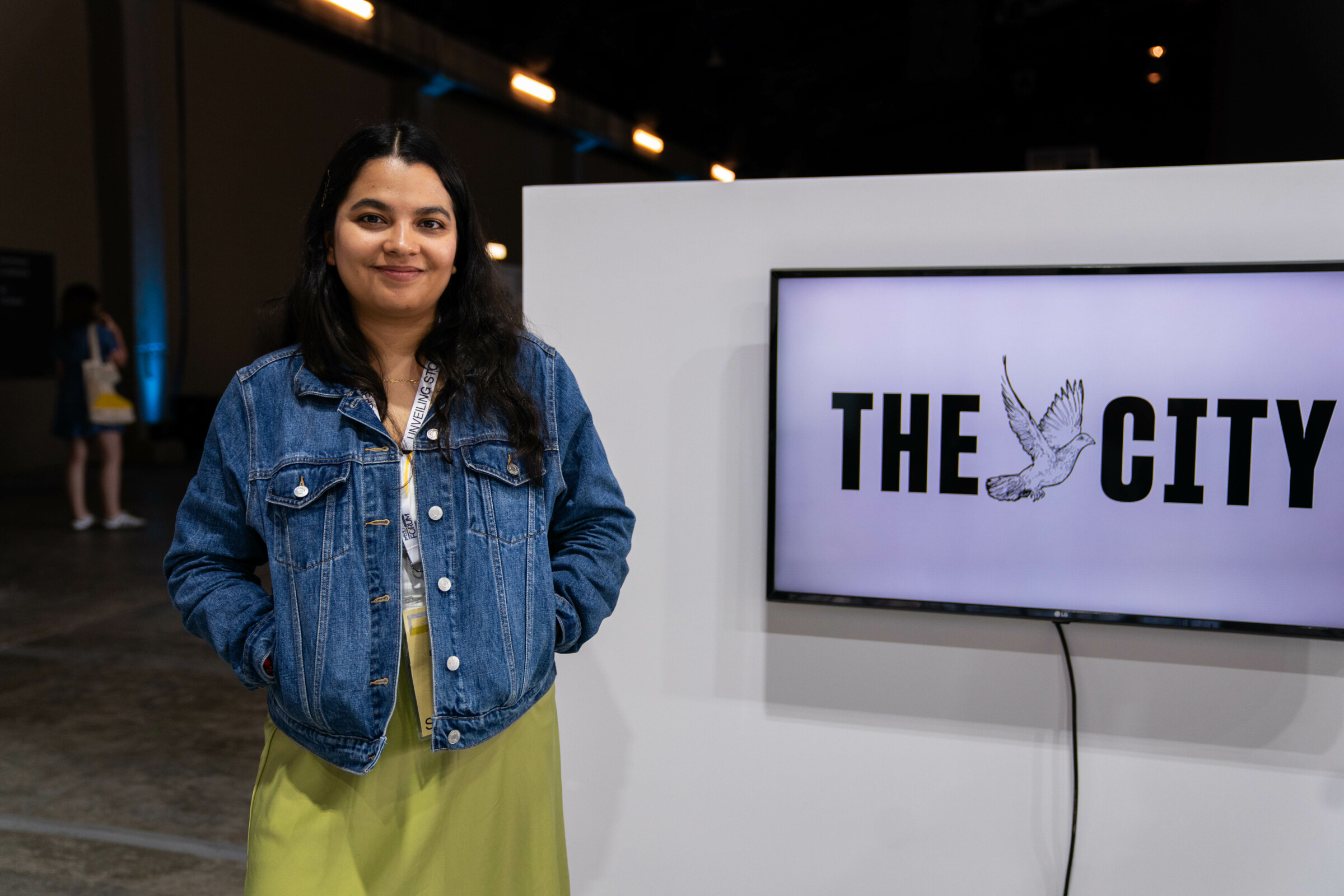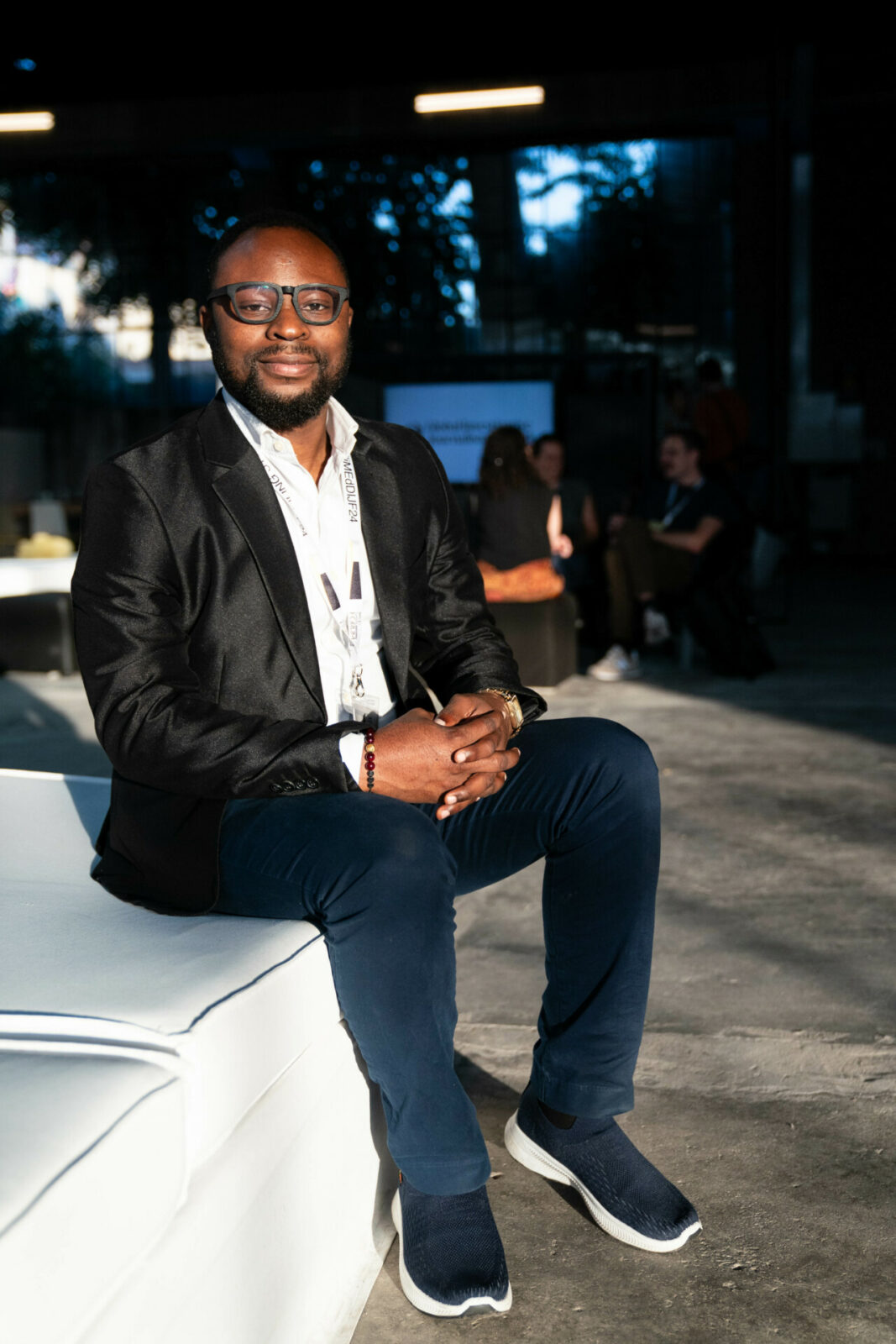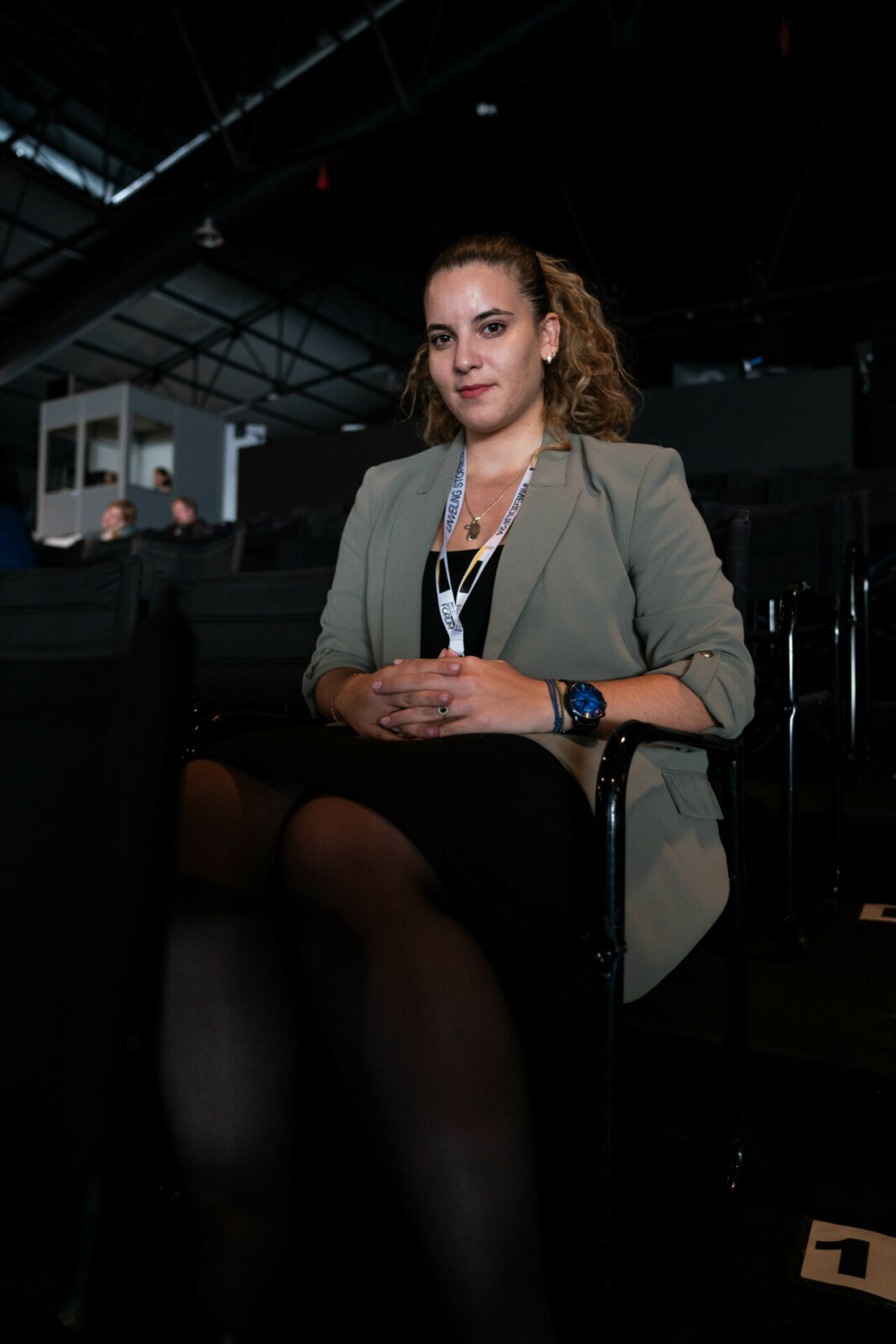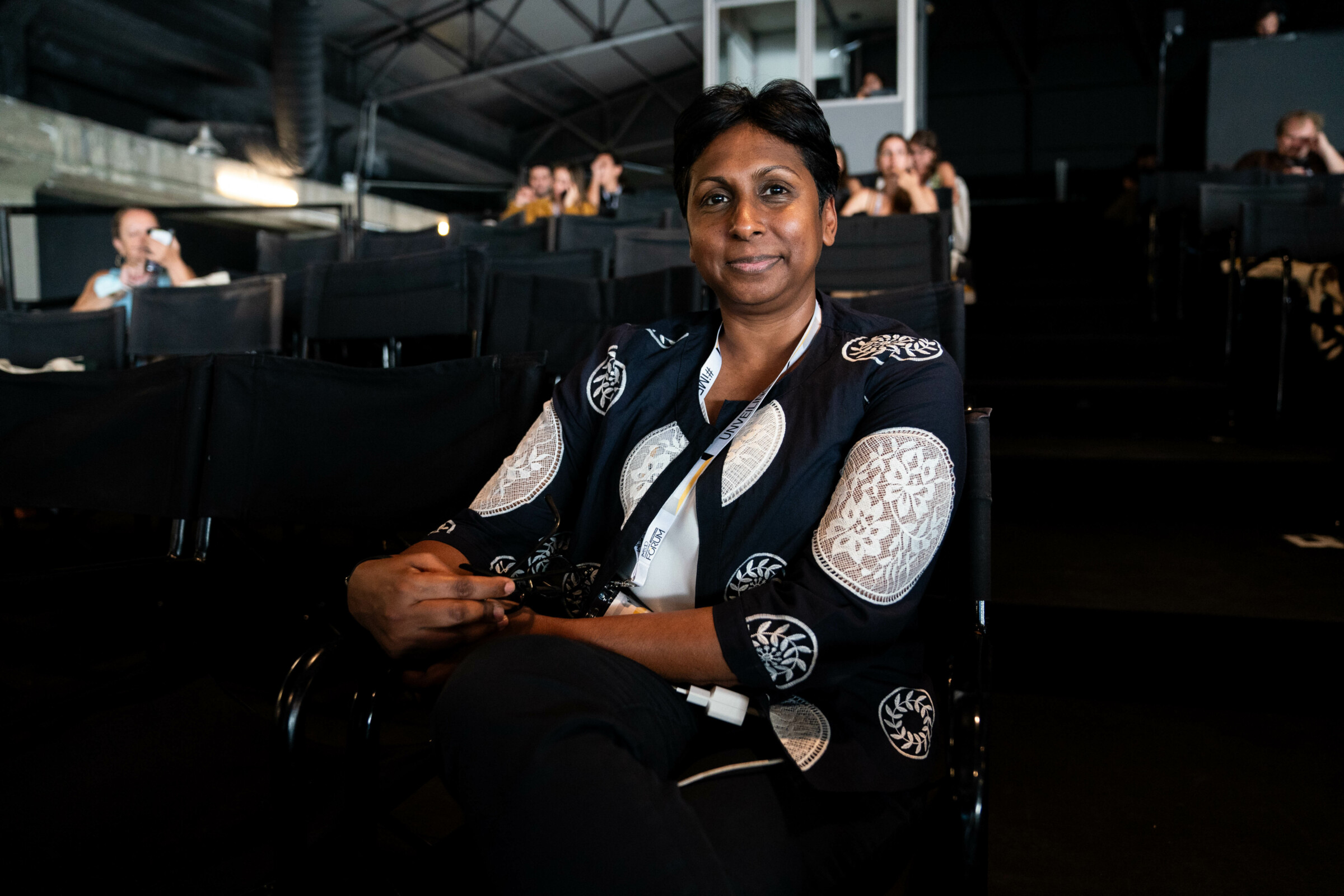What do journalists hope to get out of an international media conference? What do journalism students seek to learn from their seasoned colleagues’ experiences? And what are journalists most concerned about today? University of Pennsylvania student Anna Vazhaeparambil reports on the hopes and fears of journalists attending the 2024 iMEdD International Journalism Forum in Athens.
This year, the annual iMEdD International Journalism Forum — a three-day gathering for over 1,450 journalists, media professionals, educators, and more — served as a hub for tackling some of the biggest issues facing today’s news landscape: press freedom, artificial intelligence, climate crisis reporting, war, and media sustainability.
Traveling from all over the world and representing a diverse set of backgrounds and perspectives, participants discussed new tools, exchanged ideas, and engaged in challenging yet productive dialogue during their time in Athens. Meet Diana Riojas, Ojooluwa Ibiloye, Helen Massara, and Dinesh Balliah, four such individuals at the forum who shared their hopes, concerns, and solutions for journalism and the industry as we know it.

Diana Riojas, the audience manager for engagement and distribution at the New York City-based publication THE CITY, has been thinking about audience strategies and outreach since her student journalism days at Syracuse University, where she served as the Culture Editor of The Daily Orange.
Five years later, she’s no longer writing daily horoscopes, but the ethos of her work stays consistent: preserving her publication’s audience and making sure they continue to grow and reach the right people. And as Riojas observes social media platforms, especially Twitter, “crumbling” in recent years, it is more imperative than ever for her to make connections with her readers that are offline and independent of algorithms.
“For all the uncertainty there is, I still feel like there’s still some resiliency out there, especially with independent publications,” she said in an interview after her panel, titled “Communicating journalism: Bridging the gap between journalists and the public.” “I really feel the pressure to keep on producing content that serves [readers] well but also being ahead of the curve.”

A second-year Ph.D. student at the University of Delaware in the United States, Ojooluwa Ibiloye researches the relationship between media and democracy, specifically exploring how the media serves to build citizenship, facilitate discourse, and shape public knowledge about societal and policy issues.
The issues he studies fall under the broader themes of this forum, like the threats facing local newsrooms today and the importance of community-based journalism.
“The media have an active role to play in getting the right information to the citizens. It is what [information] the citizens have, that is what would determine how they’ll be receptive to public policies or go against the government,” Ibiloye said. “Media practitioners, like journalists, are also educators. They teach the public about what is going on around them and help them discover themselves.”

Helen Massara is a news reporter at pelop.gr, the online platform of the daily print newspaper Peloponnisos in Patras, Greece. This is her third year attending the iMEdD forum, and when asked about the importance of her work, she answers simply, “without journalism, there’s no democracy.”
“I want to tell people things that I see that they may [not] see. I want to help them, to be a voice for them,” Massara said. “Journalism helps to share stories, to meet people deeply. You have the opportunity to open up your mind, to think more openly, to write [differently].”

For Dr. Dinesh Balliah, the Director of the Wits Centre for Journalism and a professor at the University of the Witwatersrand in Johannesburg, South Africa, international dialogue on journalism issues needs to include voices and perspectives outside the Global North — and to embrace them.
“If you look around you, to be blunt, you’ll see there is a clear absence of Global South participants. For us at the Centre for Journalism, we see ourselves as a platform for the continent,” she said. “So when we participate in spaces like this, we’re inserting ourselves in spaces that may not ordinarily welcome all of us, or may not be accessible to all of us because of cost.”
Even beyond learning from other people during this forum, Balliah said, “I care about teaching other people what we know and what we do, because what we do is really good.”
Check out all Pop-Up Newsroom 2024 stories here